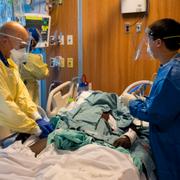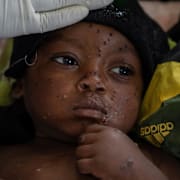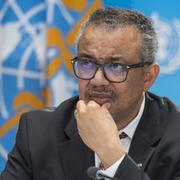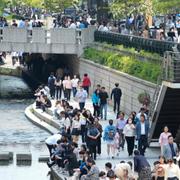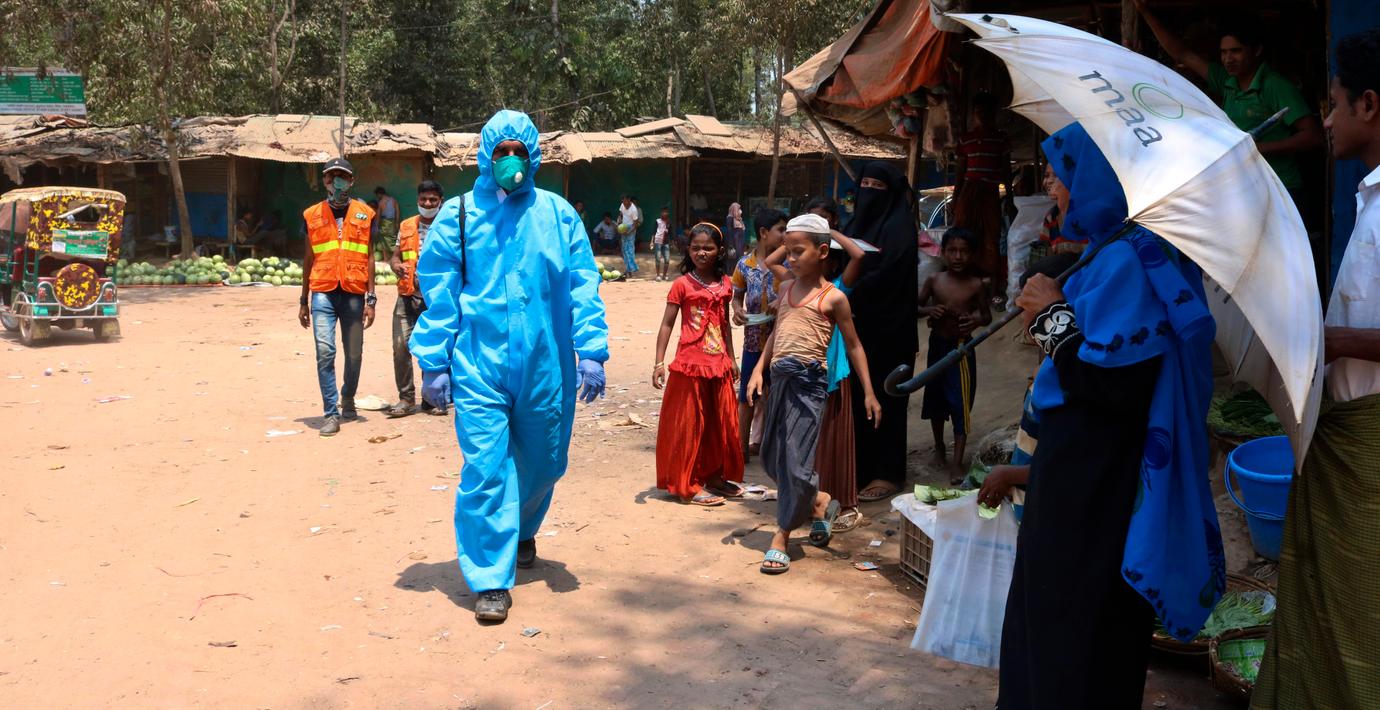
Första bekräftade fallet i rohingyaläger i Bangladesh
En man i ett flyktingläger för rohingyer i Bangladesh har testat positivt för covid-19, skriver AFP. Fallet är det första bekräftade i något av landets stora rohingyaläger, som är hem åt nästan en miljon människor.
Enligt WHO har även en man som bor i närheten av lägret smittats.
Experter har tidigare varnat för att viruset, när det väl nått lägren kring staden Cox’s Bazar, kan sprida sig snabbt i de trånga och smutsiga gränderna.
bakgrund
Rohingyer
Wikipedia (en)
Template:Short description Bangladesh origin people
The Rohingya people () are a stateless Indo-Aryan ethnic group who predominantly follow Islam and reside in Rakhine State, Myanmar (previously known as Burma). There were an estimated 1 million Rohingya living in Myanmar before the 2016–17 crisis. Described by the United Nations in 2013 as one of the most persecuted minorities in the world, the Rohingya population is denied citizenship under the 1982 Myanmar nationality law. They are also restricted from freedom of movement, state education and civil service jobs. The legal conditions faced by the Rohingya in Myanmar have been widely compared to apartheid by many international academics, analysts and political figures, including Nobel laureate Bishop Desmond Tutu, a South African anti-apartheid activist.The Rohingya maintain they are indigenous to western Myanmar with a heritage of over a millennium and influence from the Arabs, Mughals and Portuguese. The community claims it is descended from people in precolonial Arakan and colonial Arakan; historically, the region was an independent kingdom between Southeast Asia and the Indian subcontinent. The position of the Myanmar government is that Rohingyas are not a national "indigenous race", but are illegal immigrants from neighbouring Bangladesh. It argues that the Muslims of precolonial times are now recognized as Kameins and that the Rohingya conflate their history with the history of all Muslims in Arakan to advance a separatist agenda. In addition, Myanmar's government does not recognize the term "Rohingya" and prefers to refer to the community as "Bangali" in a pejorative manner. Rohingya campaign groups, notably the Arakan Rohingya National Organization, demand the right to "self-determination within Myanmar".Various armed insurrections by the Rohingya have taken place since the 1940s and the population as a whole has faced military crackdowns in 1978, 1991–1992, 2012, 2015, 2016–2017 and particularly in 2017–2018, when most of the Rohingya population of Myanmar was driven out of the country, into neighboring Bangladesh. By December 2017, an estimated 625,000 refugees from Rakhine, Myanmar, had crossed the border into Bangladesh since August 2017. UN officials and Human Rights Watch have described Myanmar's persecution of the Rohingya as ethnic cleansing. The UN human rights envoy to Myanmar reported "the long history of discrimination and persecution against the Rohingya community... could amount to crimes against humanity", and there have been warnings of an unfolding genocide. Probes by the UN have found evidence of increasing incitement of hatred and religious intolerance by "ultra-nationalist Buddhists" against Rohingyas while the Myanmar security forces have been conducting "summary executions, enforced disappearances, arbitrary arrests and detentions, torture and ill-treatment, and forced labour" against the community.Before the 2015 Rohingya refugee crisis and the military crackdown in 2016 and 2017, the Rohingya population in Myanmar was around 1.0 to 1.3 million, chiefly in the northern Rakhine townships, which were 80–98% Rohingya. Since 2015, over 900,000 Rohingya refugees have fled to south-eastern Bangladesh alone, and more to other surrounding countries, and major Muslim nations. More than 100,000 Rohingyas in Myanmar are confined in camps for internally displaced persons. Shortly before a Rohingya rebel attack that killed 12 security forces on 25 August 2017, the Myanmar military launched "clearance operations" against the Rohingya Muslims in Rakhine state that, according to NGOs, the Bangladeshi government and international news media, left many dead, many more injured, tortured or raped, with villages burned. The government of Myanmar has denied the allegations.
Omni är politiskt obundna och oberoende. Vi strävar efter att ge fler perspektiv på nyheterna. Har du frågor eller synpunkter kring vår rapportering? Kontakta redaktionen
